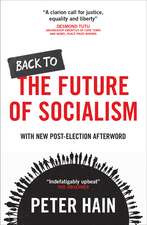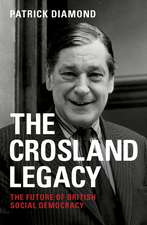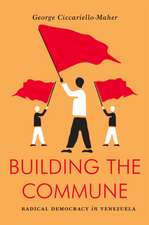El Manifi Esto Comunista (Ilustrado) - Cap Tulo DOS: La Burgues a
Autor Karl Marx, Friedrich Engels Editat de George S Rigakoses Limba Spaniolă Paperback – 10 iul 2011
Preț: 95.51 lei
Nou
Puncte Express: 143
Preț estimativ în valută:
18.28€ • 19.13$ • 15.21£
18.28€ • 19.13$ • 15.21£
Carte tipărită la comandă
Livrare economică 31 martie-14 aprilie
Preluare comenzi: 021 569.72.76
Specificații
ISBN-13: 9781926958002
ISBN-10: 1926958004
Pagini: 34
Dimensiuni: 178 x 254 x 2 mm
Greutate: 0.08 kg
Editura: Red Quill Books
ISBN-10: 1926958004
Pagini: 34
Dimensiuni: 178 x 254 x 2 mm
Greutate: 0.08 kg
Editura: Red Quill Books
Notă biografică
Karl Heinrich Marx (5 May 1818 - 14 March 1883) was a German philosopher, economist, historian, sociologist, political theorist, journalist and socialist revolutionary.
Born in Trier, Germany, Marx studied law and philosophy at university. He married Jenny von Westphalen in 1843. Due to his political publications, Marx became stateless and lived in exile with his wife and children in London for decades, where he continued to develop his thought in collaboration with German thinker Friedrich Engels and publish his writings, researching in the reading room of the British Museum. His best-known titles are the 1848 pamphlet, The Communist Manifesto, and the three-volume Das Kapital. His political and philosophical thought had enormous influence on subsequent intellectual, economic and political history, and his name has been used as an adjective, a noun and a school of social theory.
Marx's critical theories about society, economics and politics - collectively understood as Marxism - hold that human societies develop through class struggle. In capitalism, this manifests itself in the conflict between the ruling classes (known as the bourgeoisie) that control the means of production and the working classes (known as the proletariat) that enable these means by selling their labour power in return for wages.[13] Employing a critical approach known as historical materialism, Marx predicted that, like previous socio-economic systems, capitalism produced internal tensions which would lead to its self-destruction and replacement by a new system known as socialism.
For Marx, class antagonisms under capitalism, owing in part to its instability and crisis-prone nature, would eventuate the working class' development of class consciousness, leading to their conquest of political power and eventually the establishment of a classless, communist society constituted by a free association of producers. Marx actively pressed for its implementation, arguing that the working class should carry out organised revolutionary action to topple capitalism and bring about socio-economic emancipation.








